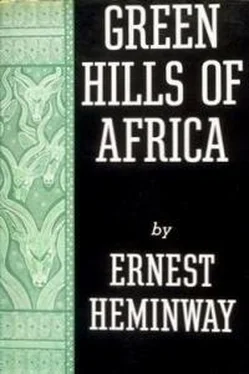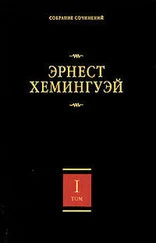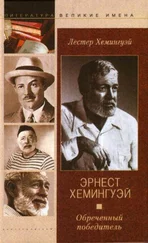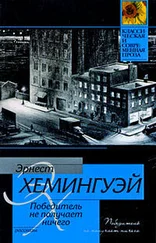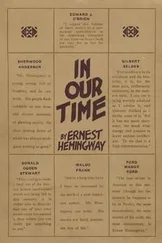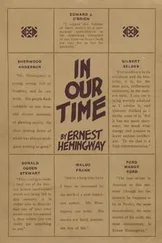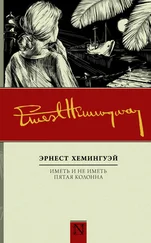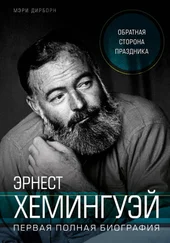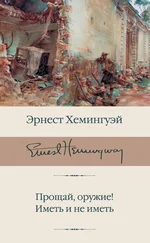'What is this now?'
'The kind of writing that can be done. How far prose can be carried if anyone is serious enough and has luck. There is a fourth and fifth dimension that can be gotten.'
'You believe it?'
'I know it.'
'And if a writer can get this?'
'Then nothing else matters. It is more important than anything he can do. The chances are, of course, that he will fail. But there is a chance that he succeeds.'
'But that is poetry you are talking about.'
'No. It is much more difficult than poetry. It is a prose that has never been written. But it can be written, without tricks and without cheating. With nothing that will go bad afterwards.'
'And why has it not been written?'
'Because there are too many factors. First, there must be talent, much talent. Talent such as Kipling had. Then there must be discipline. The discipline of Flaubert. Then there must be the conception of what it can be and an absolute conscience as unchanging as the standard meter in Paris, to prevent faking. Then the writer must be intelligent and disinterested and above all he must survive. Try to get all these in one person and have him come through all the influences that press on a writer. The hardest thing, because time is so short, is for him to survive and get his work done. But I would like us to have such a writer and to read what he would write. What do you say? Should we talk about something else?'
'It is interesting what you say. Naturally I do not agree with everything.'
'Naturally.'
'What about a gimlet?' Pop asked. 'Don't you think a gimlet might help?'
'Tell me first what are the things, the actual, concrete things that harm a writer?'
I was tired of the conversation which was becoming an interview. So I would make it an interview and finish it. The necessity to put a thousand intangibles into a sentence, now, before lunch, was too bloody.
'Politics, women, drink, money, ambition. And the lack of politics, women, drink, money and ambition,' I said profoundly.
'He's getting much too easy now,' Pop said.
'But drink. I do not understand about that. That has always seemed silly to me. I understand it as a weakness.'
'It is a way of ending a day. It has great benefits. Don't you ever want to change your ideas?'
'Let's have one,' Pop said. 'M'Wendi!'
Pop never drank before lunch except as a mistake and I knew he was trying to help me out.
'Let's all have a gimlet,' I said.
'I never drink,' Kandisky said. 'I will go to the lorry and fetch some fresh butter for lunch. It is fresh from Kandoa, unsalted. Very good. To–night we will have a special dish of Viennese dessert. My cook has learned to make it very well.'
He went off and my wife said: 'You were getting awfully profound. What was that about all these women?'
'What women?'
'When you were talking about women.'
'The hell with them,' I said. 'Those are the ones you get involved with when you're drunk.'
'So that's what you do.'
'No.'
'I don't get involved with people when I'm drunk.'
'Come, come,' said Pop. 'We're none of us ever drunk. My God, that man can talk.'
'He didn't have a chance to talk after B'wana M'Kumba started.'
'I did have verbal dysentery,' I said.
'What about his lorry? Can we tow it in without ruining ours?'
'I think so,' Pop said. 'When ours comes back from Handeni.'
At lunch under the green fly of the dining–tent, in the shade of a big tree, the wind blowing, the fresh butter much admired, Grant's gazelle chops, mashed potatoes, green corn, and then mixed fruit for dessert, Kandisky told us why the East Indians were taking the country over.
'You see, during the war they sent the Indian troops to fight here. To keep them out of India because they feared another mutiny. They promised the Aga Khan that because they fought in Africa, Indians could come freely to settle and for business afterwards. They cannot break that promise and now the Indians have taken the country over from the Europeans. They live on nothing and they send all the money back to India. When they have made enough to go home they leave, bringing out their poor relations to take over from them and continue to exploit the country.'
Pop said nothing. He would not argue with a guest at table.
'It is the Aga Khan,' Kandisky said. 'You are an American. You know nothing of these combinations.'
'Were you with Von Lettöw?' Pop asked him.
'From the start,' Kandisky said. 'Until the end.'
'He was a great fighter,' Pop said. 'I have great admiration for him.'
'You fought?' Kandisky asked.
'Yes.'
'I do not care for Lettöw,' Kandisky said. 'He fought, yes. No one ever better. When we wanted quinine he would order it captured. All supplies the same. But afterwards he cared nothing for his men. After the war I am in Germany. I go to see about indemnification for my property. "You are an Austrian," they say. "You must go through Austrian channels." So I go to Austria. "But why did you fight?" they ask me. "You cannot hold us responsible. Suppose you go to fight in China. That is your own affair. We cannot do anything for you."
'"But I went as a patriot," I say, very foolishly. "I fight where I can because I am an Austrian and I know my duty." "Yes," they say. "That is very beautiful. But you cannot hold us responsible for your noble sentiments." So they passed me from one to the other and nothing. Still I love the country very much. I have lost everything here but I have more than anyone has in Europe. To me it is always interesting. The natives and the language. I have many books of notes on them. Then too, in reality, I am a king here. It is very pleasant. Waking in the morning I extend one foot and the boy places the sock on it. When I am ready I extend the other foot and he adjusts the other sock. I step from under the mosquito bar into my drawers which are held for me. Don't you think that is very marvellous?'
'It's marvellous.'
'When you come back another time we must take a safari to study the natives. And shoot nothing, or only to eat. Look, I will show you a dance and sing a song.'
Crouched, elbows lifting and falling, knees humping, he shuffled around the table, singing. Undoubtedly it was very fine.
'That is only one of a thousand,' he said. 'Now I must go for a time. You will be sleeping.'
'There's no hurry. Stay around.'
'No. Surely you will be sleeping. I also. I will take the butter to keep it cool.'
'We'll see you at supper,' Pop said.
'Now you must sleep. Good–bye.'
After he was gone, Pop said: 'I wouldn't believe all that about the Aga Khan, you know.'
'It sounded pretty good.'
'Of course he feels badly,' Pop said. 'Who wouldn't. Von Lettöw was a hell of a man.'
'He's very intelligent,' my wife said. 'He talks wonderfully about the natives. But he's bitter about American women.'
'So am I,' said Pop. 'He's a good man. You better get some shut–eye. You'll need to start about three–thirty.'
'Have them call me.'
Molo raised the back of the tent, propping it with sticks, so the wind blew through and I went to sleep reading, the wind coming in cool and fresh under the heated canvas.
When I woke it was time to go. There were rain clouds in the sky and it was very hot. They had packed some tinned fruit, a five–pound piece of roast meat, bread, tea, a tea pot, and some tinned milk in a whisky box with four bottles of beer. There was a canvas water bag and a ground cloth to use as a tent. M'Cola was taking the big gun out to the car.
'There's no hurry about getting back,' Pop said. 'We'll look for you when we see you.'
'All right.'
'We'll send the lorry to haul that sportsman into Handeni. He's sending his men ahead walking.'
'You're sure the lorry can stand it? Don't do it because he's a friend of mine.'
Читать дальше
Конец ознакомительного отрывка
Купить книгу
